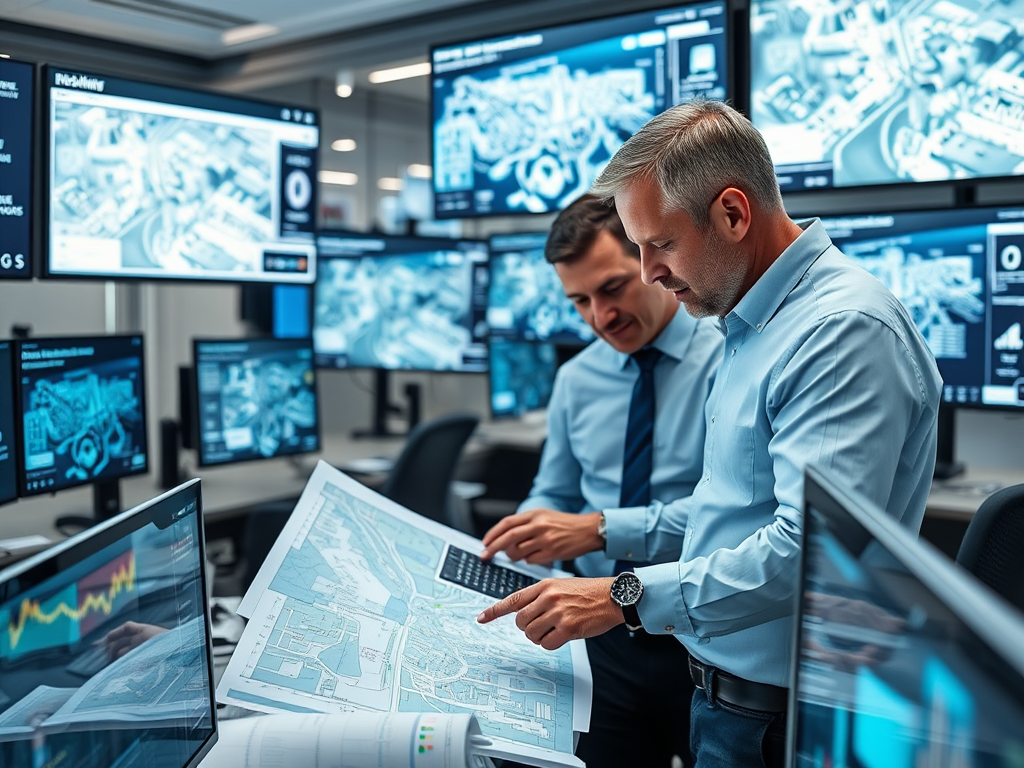Dubai is rapidly emerging as a global hub for innovation, particularly in the field of artificial intelligence (AI) and urban planning. With its ambitious vision for creating smart cities, Dubai is leveraging AI technologies to enhance infrastructure, improve efficiency, and offer better living conditions. This article will explore the various investment trends currently shaping Dubai’s AI-powered urban planning landscape, highlighting how stakeholders can capitalize on these advancements.
The Role of AI in Urban Planning

Artificial intelligence is revolutionizing urban planning by enabling data-driven decision-making processes. In Dubai, AI applications are being employed to streamline traffic management, optimize energy consumption, and predict urban growth patterns. By analyzing vast amounts of data from multiple sources, AI can help urban planners design smarter layouts and allocate resources more efficiently. Key areas where AI is making an impact include:
- Smart Transportation: AI systems are used to manage real-time traffic conditions, preventing congestion and enhancing public transport.
- Environmental Monitoring: Automated systems analyze pollutants and help in preserving biodiversity.
- Predictive Maintenance: Managers can anticipate infrastructure failures and prioritize repairs.
This integration of AI tools allows Dubai’s planners to create more resilient and responsive urban environments, showcasing the potential for significant returns on investment in these technologies.
Investment Opportunities in AI-Driven Infrastructure

The focus on AI in urban planning has opened up numerous investment opportunities in Dubai. Investors can explore various avenues to capitalize on this trend, including:
- Smart Buildings: Investing in IoT-powered buildings that optimize energy use and provide integrated services.
- Transportation Networks: Development of self-driving vehicles and smart traffic systems.
- Renewable Energy Solutions: Harnessing AI to manage energy consumption in urban areas.
- Data Analytics Firms: Supporting companies that specialize in urban data collection and analysis.
Each of these sectors presents unique advantages, as well as risks that need to be carefully evaluated. By understanding market trends, investors can make informed decisions to maximize their returns in this dynamic landscape.
Collaborations and Public-Private Partnerships
Collaboration between government entities and private sector players is vital for the successful implementation of AI-powered urban planning. Dubai’s government actively encourages public-private partnerships (PPPs) to harness private investment and expertise. These partnerships can lead to the acceleration of technology adoption and innovation, ultimately driving economic growth. Key factors driving these partnerships include:
- Regulatory Support: The government offers incentives for companies that contribute to smart urban solutions.
- Shared Vision: Both parties aim for sustainable and efficient urban development.
- Resource Pooling: Combining private funding with public resources enhances project viability.
As the city continues to focus on its Vision 2021 initiatives, it is expected that more collaborations will emerge, offering investors a pathway into the AI-driven urban planning sector.
Challenges Facing AI Implementation
Despite the promising opportunities, there are challenges to consider when investing in AI-powered urban planning in Dubai. These challenges include technological, regulatory, and market barriers. Investors must be aware of the following:
- Data Privacy Concerns: The collection and utilization of citizen data raise ethical issues that need addressing.
- High Initial Investment: The cost of developing AI solutions can be substantial, requiring long-term commitment.
- Resistance to Change: Stakeholders may be reluctant to embrace new technologies, slowing down implementation.
By acknowledging these challenges, investors can devise strategies to mitigate risks and ensure their projects align with market readiness and regulatory requirements.
Conclusion
The investment trends in Dubai’s AI-powered urban planning present a plethora of opportunities for stakeholders at all levels. The city’s commitment to utilizing emerging technologies not only enhances urban living but also catalyzes economic growth through innovation. By exploring the growing sectors and forming strategic partnerships, investors can position themselves advantageously within this dynamic marketplace. As AI continues to reshape urban environments, those who adapt quickly will likely see significant benefits.
Frequently Asked Questions
1. What are the main benefits of AI in urban planning in Dubai?
AI offers improved data analysis for better decision-making, enhanced resource management, and increased resilience against urban challenges.
2. What investment opportunities exist within AI urban planning?
Opportunities include smart buildings, transportation solutions, renewable energy projects, and data analytics companies.
3. How does public-private partnership enhance urban planning in Dubai?
PPPs foster collaboration, resource pooling, and accelerate the adoption of innovative solutions through shared goals.
4. What challenges do investors face in this sector?
Challenges include data privacy concerns, significant initial investments, and potential resistance to new technologies.
5. How can I start looking for investments in Dubai’s AI urban planning sector?
Research the current market landscape, attend industry conferences, and engage with local stakeholders to identify viable opportunities.


